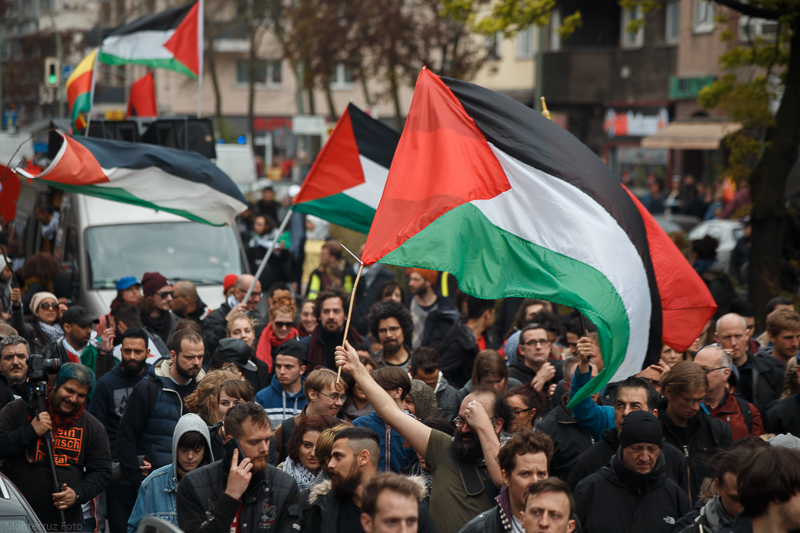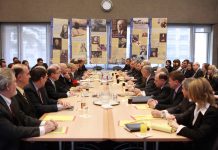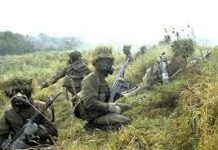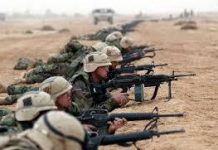
Iran’s Supreme Leader Ayatollah Ali Khamenei’s principal military advisor, Yahya Rahim Safavi, has openly endorsed and pledged continued support for Hamas’ recent attacks on Israel, asserting that Tehran will stand by these Islamist combatants until the eventual liberation of Palestine and Jerusalem. These declarations, articulated by Rahim Safavi, a former commander of Iran’s Revolutionary Guards, may exacerbate suspicions surrounding Iran’s direct involvement in bolstering its traditional ally, Hamas, in the meticulously executed assaults that have resulted in a casualty toll exceeding 40 and left over 700 individuals injured.
The pronouncements made by Rahim Safavi and other prominent Iranian policymakers are likely to be perceived by Saudi Arabia, a long-standing regional adversary of Iran, as a provocative signal indicating Tehran’s willingness to instigate regional conflicts with the aim of thwarting Riyadh’s efforts to normalize relations with Israel, a move supported by the United States.
Rahim Safavi was quoted by state media in Iran as saying, “We endorse the laudable ‘Al-Aqsa Storm’ operations,” employing Hamas’ nomenclature for the rocket attacks and incursions conducted on Saturday.
The recent attack on Israel from Gaza occurred in close proximity to a social media post by Iran’s Supreme Leader, Ayatollah Ali Khamenei, where he asserted that the Israeli government was on a path toward its demise. Khamenei expressed optimism about the vigor and readiness of the Palestinian youth and the broader anti-oppression, anti-occupation movement in Palestine. He emphasized his hope that this movement would ultimately achieve its objectives.
This militant offensive has unfolded against a backdrop of heightened diplomatic sensitivity, as Saudi Arabia has hinted at the possibility of normalizing relations with Israel. Such an alliance would significantly unsettle Tehran. Saudi Crown Prince Mohammed bin Salman’s recent interview on Fox News, in which he discussed diplomacy with Israel and mentioned a growing closeness, has raised alarm in Iran.
In recent weeks, Iranian leaders have strongly opposed a U.S.-backed proposed deal between Israel and Saudi Arabia. On October 3, Ayatollah Khamenei warned that countries attempting to normalize relations with Israel were taking a substantial risk, characterizing it as betting on a losing proposition.
Hezbollah, another militant group with ties to Iran, has also seemingly linked the violence on Saturday to Saudi Arabia’s rapprochement with Israel. In a statement, Hezbollah framed the attack as a decisive response to Israel’s ongoing occupation and a message to those pursuing normalization with Israel.
This assault marks the largest confrontation between Israel and Hamas since their 10-day battle in 2021. Hamas military commander Mohammad Deif announced the start of the assault, emphasizing its significance as an endeavor to end what is perceived as the last occupation on Earth. He claimed that 5,000 rockets had been fired at Israel.
Israeli officials had been anticipating a potential attack from either Hamas or Hezbollah, or possibly both, since August. This anticipation was fueled by escalating skirmishes in the border area between Israel and Lebanon. Israeli Defense Minister Yoav Gallant had warned that a conflict with Hezbollah would result in Lebanon being brought back to a dire state of devastation.
In September, meetings took place in Lebanon between Hamas and Iranian Revolutionary Guard commanders, indicating a level of organization in the planning of this assault on Israel, as noted by Jason Brodsky, a non-resident scholar at the Middle East Institute.
The history of conflict between Israel and the Gaza-based Islamist Hamas movement has seen eruptions into full-scale wars in 2009, 2012, 2014, and 2021. The relationship between Hamas and its main backer, Iran, became strained during the Syrian civil war when Tehran supported President Bashar al-Assad, while Hamas supported rebels seeking to overthrow him.
As a consequence of unfolding events during the Arab Spring, Hamas found itself gravitating toward Saudi Arabia and Qatar. However, given the ongoing Syrian civil war, Hamas ultimately had limited alternatives and had to reestablish connections with Iran. The Palestinian group experienced a growing sense of isolation due to the evolving dynamics of the Arab Spring, and its financial woes deepened when its funding sources from Tehran and its previous headquarters in Damascus, up until 2012, dwindled. Additional financial strains were imposed when Egyptian President Mohamed Morsi, the first Muslim Brotherhood leader of Egypt, was ousted from power. Furthermore, a change in leadership in Qatar had adverse financial repercussions for Hamas, compelling the group to reconsider its stance on the Syrian civil war and return to Tehran seeking financial support.




